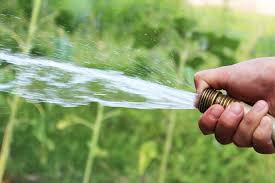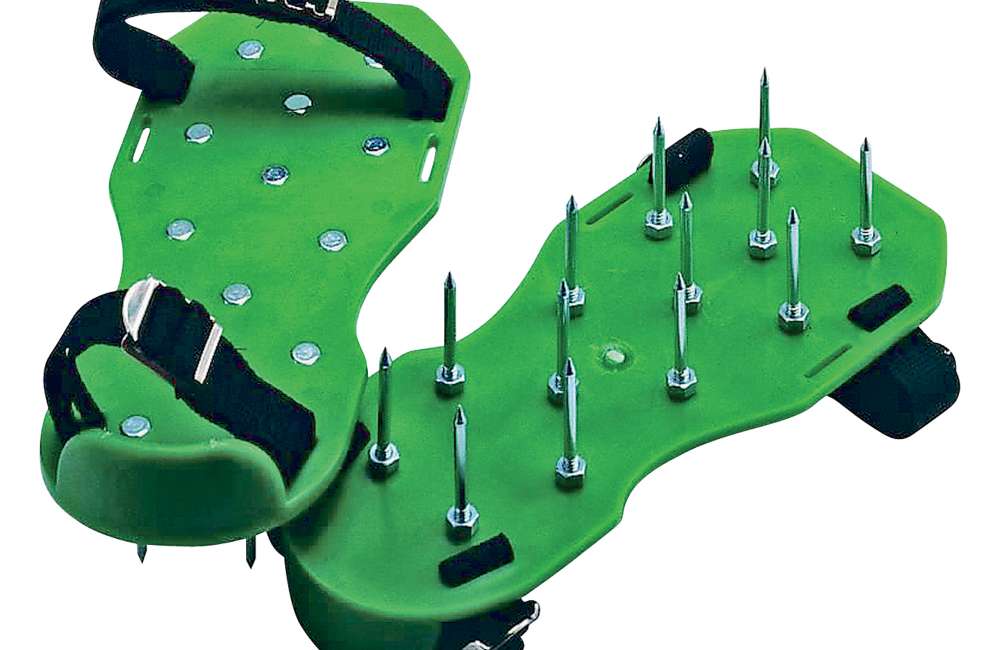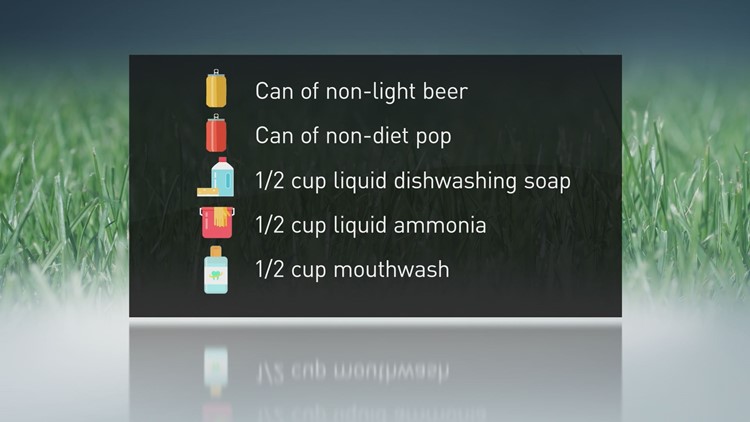Lawn Care Myths
There are a lot of myths floating around about what practices are best for lawns. Don’t be fooled by quick fixes or methods that seem too good to be true. We’ve got a list of myths and the reality behind them.
A Garden Hose Is More Cost-Efficient Than a Sprinkler System

You may have heard that watering your lawn by hand and garden hose is actually more cost-efficient than running a sprinkler system. At some point in time, this may have been true, but current sprinkler systems often have sensors to detect soil moisture and thus only run when necessary. That means you save money and water your lawn only when it’s most beneficial.
The real problem with hand watering, though, is that it’s uneven. Although you may think you are watering your lawn evenly, watering by hand often leads to over-watering in some areas and under-watering in others. This can cause patchiness in your lawn and over time, some areas may suffer from dehydration. Sprinkler systems are designed to water your lawn evenly.
It’s Best to Water Every Day
The fact that water is essential for plant growth doesn’t mean lawns need water every day. While it’s true that a lawn will benefit from healthy watering, too much water can actually weaken your lawn.
Watering every day for 15 minutes will ensure your lawn has the water it needs but it doesn’t promote the deeper root growth that strengthens a lawn. Instead, watering once a week for an hour, or a couple of times a week for 30 minutes can provide a deeper watering that helps the roots of your lawn strengthen.
Grass Clippings Cause Thatch
You may have heard that leaving grass clippings causes thatch, but in reality, thatch is caused by a number of factors, grass clippings not among any of them.
Most often, thatch is when the root system in your turf clutters up with the stems and then the roots build up faster than they breakdown. What is cut when you mow your lawn are the blades of the grass which are primarily made up of water and break down quickly.
If you do have thatch, it could be from a combination of factors; heavy nitrogen fertilizer, overwatering, alkaline soil, soil compaction, etc. Have a professional come evaluate your lawn to determine what the cause of thatch is and how to remedy it.
Spiked Shoes Will Aerate Your Lawn & Your Lawn Needs Aeration Every Year

Aeration can be thought of as the process of removing small bits of turf to make your lawn healthier. One might think that shoes with large spikes would punch enough holes to effectively aerate a yard, but there are two issues with this:
1) You most likely won’t aerate enough surface area.
2) Puncturing the ground is different than removing soil plugs.
Aeration works by loosening up the turf and pulling plugs using hollow tines. This allows for better water and air exchange as well as creates more room for compacted roots to spread into. Unless you are walking for hours with spiked shoes, you likely aren’t aerating very effectively or efficiently. Also, spikes only punch holes into the ground, making them less effective than a core aerator which pulls plugs.
Just because aeration shoes are a product you can buy, that doesn’t mean your money wouldn’t be better spent investing in solutions that are more effective.
Grubs in your lawn = Grub problems
You may have heard that grubs are bad for lawns, but what’s really important is how many grubs. A few grubs in your lawn is natural and good. Grubs only become a problem if you find 10 or more in a single square foot. In high numbers, they can ruin your grass’ roots.
Lawn Tonic/Converse Lawns Need Fertilizer (don’t fertilize when time isn’t right or too often)

You may have heard of homemade lawn tonics, perhaps promoted by lawn “expert” Jerry Baker, and at first glance, they seem to make sense. After all, we use fertilizer to give our lawn nutrients and minerals to grow, so why wouldn’t something you make at home, work?
Here, the issue is that the goods mixed to make a tonic are almost always never products that were designed with the aim of promoting healthy turf. At best they may have little to no effect on your lawn, and at worst they can kill good microbes and other life that keeps your lawn healthy and green.
Often times these tonics come with little direction or non-anecdotal evidence to back up their claims. You are better off using store-bought fertilizers and following their directions carefully or contacting a professional if you really want to do what’s best for your lawn.
In the End
If something sounds too good to be true, it very well might be. Or if directions are vague, it’s probably because the solution hasn’t been well researched or tested.
We all know to be wary of what we read online. While there is lots of great information out there, if you are serious about your lawn care then contact a lawn care professional like us to help get your lawn into tip-top shape.

